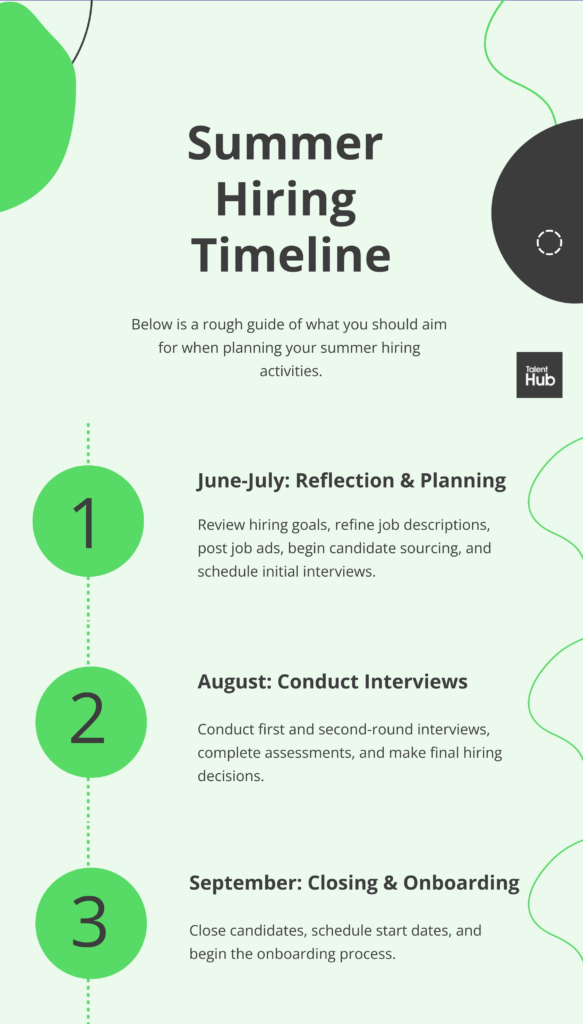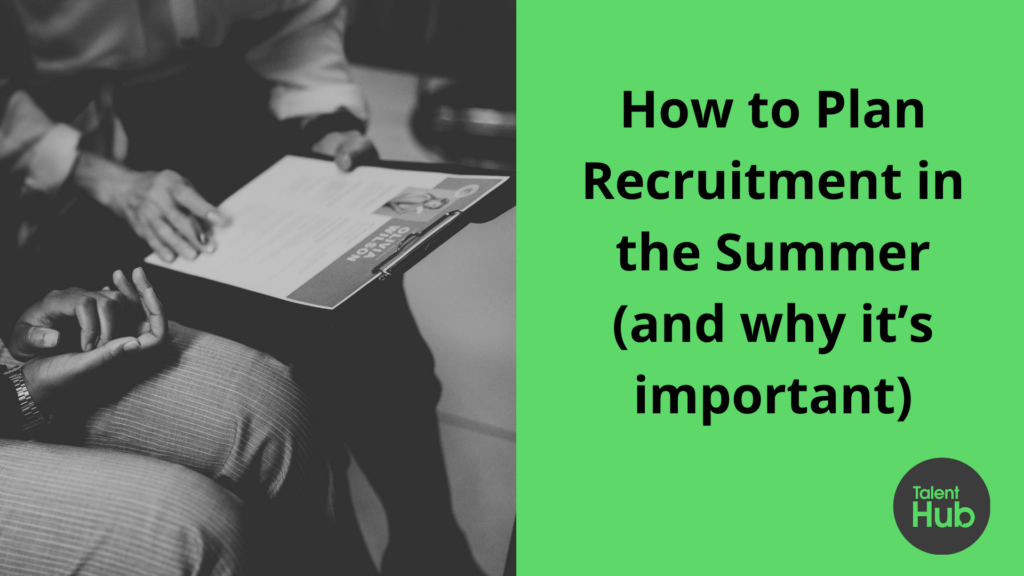Summer is here! But what does that mean for recruitment?
You might think that all the candidates are on vacation, and even if you approach them with the best job offer, they won’t pay attention.
Wrong!
Although the summer period might be slower and more relaxed, the recruitment market remains active.
If anything, candidates take time to reflect on their career goals, and when they return from vacation, they’re more likely to consider changing positions.
All this means is that you should be prepared.
Find out why planning your recruitment activities ahead of time is important, and what’s the best way to do it in the summer.
Let’s get into it!
Why Should You Plan Recruitment Activities in the Summer?
In short, planning in the summer means you’re ahead of the game. If you consider that the average recruitment process takes 6-8 weeks, and most candidates have a one-month notice period (sometimes even longer), you don’t have much time to waste. Ideally, your recruitment activities should peak in Q3 before the market slows down again during Christmas.
If you want to successfully onboard new hires before the year ends, you should already be conducting job interviews in August, and closing candidates in September. This ensures that by the time the busy end-of-year period rolls around, your new employees are already settled and contributing to the company’s goals.
Start with reflection
If you created a recruitment plan for the whole year, then you should know how many people you still have left to hire. Summer months such as June and July are perfect for reflection.
To assess your progress, think about these questions:
- Are you ahead of schedule in terms of your recruitment objectives? (e.g. are you meeting your total headcount)
- What do you need to do to achieve your yearly recruitment goals?
Remember, your recruitment goals should always align with your overall business objectives. If you’re behind, now is the time to recalibrate your strategy.
Build candidate pipeline early
Summertime isn’t just a holiday season for candidates – chances are you’ll be snoozing away from work as well. Ideally, as a hiring manager, you should already have a pipeline of candidates ready for interviewing once you return from vacation. That’s why it’s important to post job ads before you go on holiday so that when you come back, you can just focus on closing the right candidates.
Give a great candidate experience
You might look at this in two ways:
a) The recruitment market slows down during the summer, and everyone is more relaxed, which means candidates probably don’t expect us to be as responsive anyway.
b) This is the perfect opportunity for us to double down on candidate experience and stand out.
While option A might be true, we recommend you take the latter approach. If you’re a small company or a start-up, summer is the perfect chance for you to build your reputation as an employer.
Here are a few tips on how you can stay on top of the candidate experience in the summer:
- Set Clear Timelines: Communicate the recruitment process and expected timelines to candidates. Keep candidates from guessing, always let them know when they will hear back from you and who will be their point of contact.
- Remain Flexible: Understand that candidates might also be taking vacations. Offer flexible interview times and be open to accommodate their schedules.
- Share Information: Keep candidates informed about each stage of the hiring process and provide timely feedback.
Summer hiring timeline checklist

Below is a rough guide of what you should aim for when planning your summer hiring activities.
June-July (Reflection and planning)
- Review Recruitment Goals: Assess current progress against annual hiring targets.
- Prepare Job Descriptions: Refine your recruitment strategy and job descriptions.
- Post Job Ads: Advertise job openings on relevant platforms.
- Begin Sourcing Candidates: Start preliminary screenings and build a candidate pipeline.
- Schedule Initial Interviews: Begin scheduling interviews for early August.
- Communicate Timelines: Keep candidates informed about the recruitment process and expectations.
August (Interviews and assessments)
- Interviews: Conduct first-round interviews and provide timely feedback.
- Schedule Follow-Up Interviews: Arrange second-round interviews and assessments.
- Finish Candidate Selection: Complete reference checks and make final hiring decisions.
- Extend Job Offers: Create job offers to selected candidates
September (Offers and onboarding)
- Close Candidates: Ensure candidates accept job offers
- Schedule Start Dates: Confirm start dates for new hires and plan their first weeks.
- Begin Onboarding Process: Use our 30-60-90-day onboarding process as a reference guide.
Takeaways
Above all, summer serves as a strategic window for proactive recruitment planning. Evaluating progress against annual goals and refining strategies during June and July sets the stage for effective candidate sourcing and initial interviews in August.
Ideally, aim to onboard new hires by September. This ensures they are fully integrated into the team and making an impact by the time Christmas arrives.


